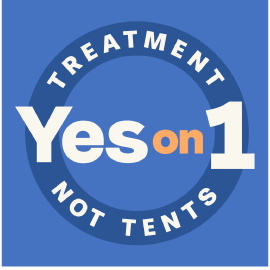
California voters have approved Proposition 1, Governor Gavin Newsom’s ambitious plan to address the interrelated social crises of homelessness, untreated serious mental illness and drug abuse in California.
With no unprocessed ballots remaining, Proposition 1 passed with the support of 50.2% of voters, versus 49.8% opposing.
The California Chamber of Commerce supported Proposition 1 because it will provide resources to help communities across the state recover from what has been an unprecedented mental health and homelessness crisis.
Proposition 1 authorizes $6.38 billion in state general obligation bonds to build mental health treatment facilities and reform existing law to stipulate how counties spend the funding they already receive for housing and mental health services.
CalChamber Support
CalChamber President and CEO Jennifer Barrera co-signed the rebuttal to the ballot argument against Proposition 1 and appeared at events to underscore the organization’s support.
In addition, the CalChamber briefed local chamber and business allies on the significant resources Proposition 1 will provide for communities to use in combating homelessness, improving delivery of mental health services and building additional housing without raising taxes.
Proposition 1
Proposition 1 changes the voter-approved Mental Health Services Act (MHSA) passed in 2004 to ensure the counties use funding they currently receive (from a tax on incomes exceeding $1 million a year) to combat homelessness, treat persons suffering from behavioral health conditions, and support specific vulnerable populations.
Funding Allocation
Of the $6.38 billion in general obligation bonds:
• $4.4 billion will go to the state program that builds mental health care and drug or alcohol treatment facilities; at least $1.5 billion of this allocation must go to local governments and tribes.
• $2 billion will go to the state program that grants money to local governments to turn hotels, motels and other buildings into housing and construct new housing, with just more than half being set aside for homeless veterans.
The state Legislative Analyst’s Office (LAO) estimates the cost to repay the bond will be about $310 million annually over a 30-year period.
Other Benefits
• Expands community-based mental health and addiction services across the state and will serve tens of thousands of Californians each year.
• Builds supportive housing where more than 11,000 Californians with the severest mental health needs can live, recover, stabilize and thrive.
• Prioritizes treatment over incarceration. Today, 1 in 3 California prisoners has a diagnosed mental illness and California spends more than $100,000 per incarcerated person. Research shows incarceration is costly and counterproductive.
• Helps homeless veterans. Proposition 1 will provide $1 billion to serve veterans experiencing homelessness, mental health and substance abuse issues. More than 10,000 California veterans, many suffering from post-traumatic stress disorder (PTSD), are homeless and on the street.
• Addresses shortage of mental health workers. Currently, persons with serious mental health issues can wait six months or longer for just an introductory appointment. Proposition 1 will fund additional professionals.
• Requires strict accountability. The measure includes mandatory audits to ensure that funds are spent as promised.

